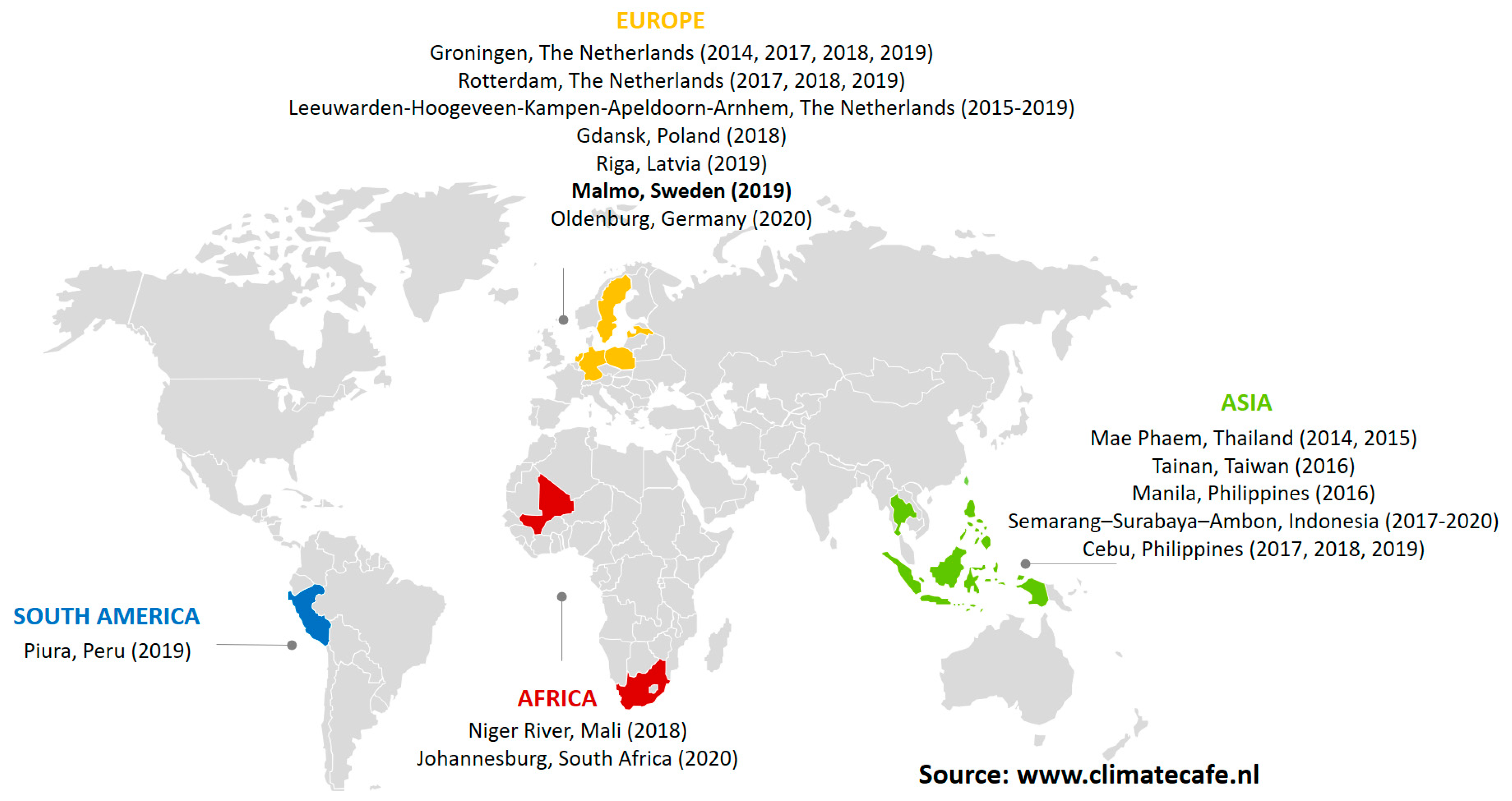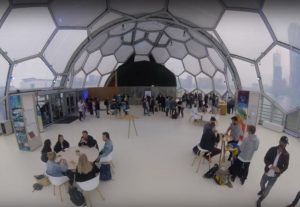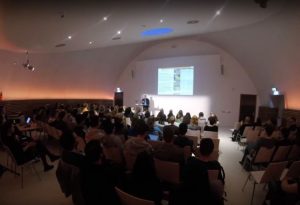
ClimateCafé around the world (source)
ClimateCafé is developed by Groningen and Rotterdam University of Applied Sciences to gather factual and objective data in a short period of time (1-2 weeks) by young professionals and practitioners that enable them to assess the ‘level of resilience’ of a specific area. The ClimateCafé method aims to use low-cost and low-tech tools and instruments. Parameters that are assessed in riverscans and cityscans: urban heat (temperature), urban water quality, air quality, urban floods (infiltration capacity) and waste pollution (plastic waste). Storytelling is recently added as a successful method to collect subjective data such as the opinion and perspective of the community and integrate these data in the climate scan results.
Quadruple Helix collaboration
The first step in the ‘Analyze, ambition, act’ climate adaptation strategy is identification of bottlenecks in areas such as flooding, drought, and heat. International exploratory city scans are set up in order to put the necessary steps in place to go from ‘analyze’ to ‘action’. During a scan, an international ‘Quadruple Helix’ team (government, industry, academia, civil participants) work together towards tangible results. Bringing these multidisciplinary viewpoints together in an environment that promotes team working, collaboration and the sharing of ideas. By working together, this quadruple helix approach can create new shared value that benefits all participants in what becomes an innovation ecosystem. Technology plays a key role in creating networks and connectivity.


Selection of Publications:
| Boogaard, F.C.; Venvik, G.; Pedroso de Lima, R.L.; Cassanti, A.C.; Roest, A.H.; Zuurman, A. ClimateCafé: An Interdisciplinary Educational Tool for Sustainable Climate Adaptation and Lessons Learned. Sustainability 2020, 12, 3694.
F. Boogaard, G Venvik, A Roest, A. Zuurman, A.C. Cassanti, R de Lima, Climatecafe for interdisciplinary active knowledge exchange on climate adaptation: 25th edition Malmo climatecafe (extended abstract), international conference Cities, Rain and Risk 12-14 June 2019, Malmo Sweden. Heikoop R., Boogaard F. C., City Rotterdam: a method to assess climate change vulnerabilities at street and neighborhood level, Adaptation Futures 2018 Dialogues for solutions, 5th international climate change adaptation conference, Cape Town 18-21 June 2018. https://doi.org/10.15641/0-7992-2543-3 Climatecafe.nl (References individual events https://climatecafe.nl/news)Boogaard F.C., Vojinovic Z., Heikoop R., Storm Water and Wastewater Management for Improving Water Quality, Proceedings – Global Water Safety Conference, Philippines, April 25-29, 2016. DUTCH Boogaard F. Geldof G. Zuurman A. , Klimaatadaptatie evalueren met participatief leren: ClimateCafé Malmö, H20 6 april 2020. Boogaard F., Heikoop R., van de Sandt K, den Oudendammer T, Oostra A., Internationale city climatescan Rotterdam, onderzoeksresultaten klimaatadaptatie: infiltratie in het stedelijk gebied, (in Dutch), H20, 2018. Several papers on different topics mentioning ClimateCafé e.g: Floris Boogaard Allard Roest, Jasper Schmeits, Guri Venvik New Quickscan method for prevention of groundwater pollution through stormwater infiltration, XRF as new quick scan method to map heavy metals in Dutch Sustainable urban Drainage Systems, IAH Groundwater management and governance, Allard Roest, Jasper Schmeits, Guri Venvik, Malaga 22-27th September 2019 to be published: Rick Heikoop, F. Boogaard, Storytelling: Research results of a new combined method in climate adaptation; Storytelling in City Climate Scans. will be published as chapter in Designing Resilience in Asia book (edited by National University of Singapore), 2020
|